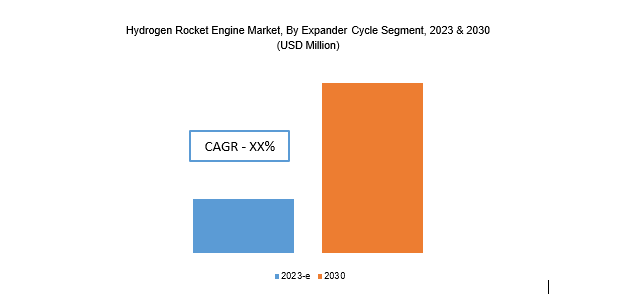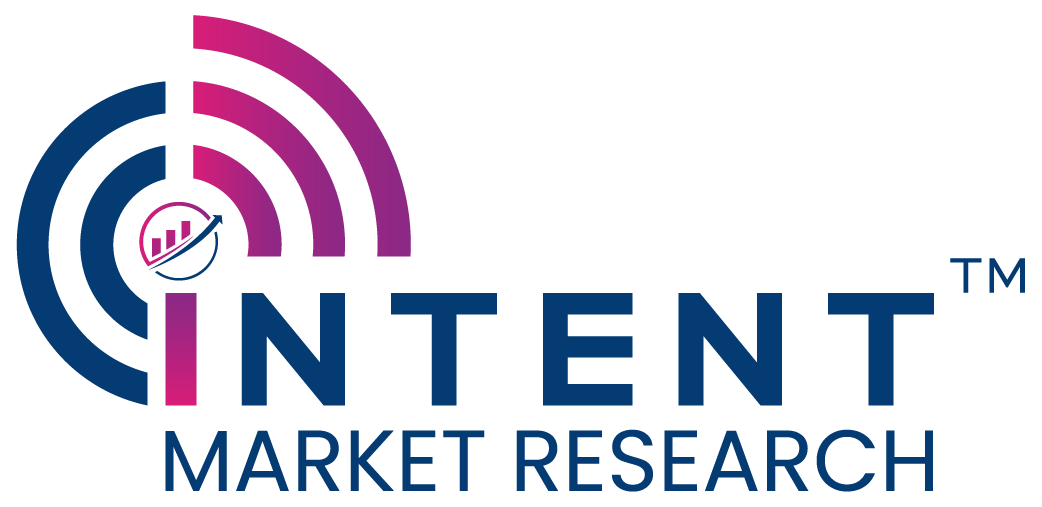Increasing Privatization of the Space Sector is Driving the Hydrogen Rocket Engine Market
- December, 2023
- Aerospace & Defense
The hydrogen rocket engine market is expected to grow from USD 2.2 billion in 2023-e to USD 5.1 billion by 2030, at a CAGR of 12.8% during the forecast period. The hydrogen rocket engine market is a competitive market, the prominent players in the global market include Aerojet Rocketdyne (L3Harris Technologies), Blue Origin, Boeing, China Academy of Launch Vehicle Technology (CALT), Hindustan Aeronautics Limited (HAL), Mitsubishi Heavy Industries, Pulsar, Safran Aircraft Engines, ArianeGroup, and IHI Corporation.
According to the latest research study published by Intent Market Research, hydrogen rocket engine market is projected to reach USD 5.1 billion by 2030, at a CAGR of 12.8% during the forecast period of 2024 to 2030.
The hydrogen rocket engine market has gained significant momentum in recent years owing to a surge in demand for clean rocket fuel and increasing privatization of the space sector. The demand for hydrogen rocket engines is anticipated to grow at a significant pace with the adoption of new emerging technologies. The key companies in hydrogen rocket engines are continuously striving to strengthen their portfolio to meet the growing demand.
Growing Emphasis on Reusable Rockets are Driving the Demand for Expander Segment
The expander cycle is a power cycle of a bipropellant rocket engine. The expander cycle has high performance and high reliability and is used in several rockets including the RL-10 series and Vinci. There are a few modes of expander cycle including expander bleed cycle and dual expander which are utilized by different rockets. Some of the key benefits that expander cycles offer are low temperature, high tolerance, and high safety. Expander cycle rocket engines typically operate with propellants at room temperature, minimizing damage to the turbine and enabling reusability. The growing emphasis on reusable rockets is a key factor fueling the demand for expander cycle rocket engines.

Increasing Emphasis on Clean Rocket Fuel is Driving the Demand for Hydrogen Rocket Boosters
A booster is a rocket engine designed for use in the first stage of a multistage launch vehicle. It can also be employed in parallel with longer-burning sustainer rockets to enhance the space vehicle’s takeoff thrust and payload capability. Several active hydrogen rocket boosters are in service in the industry including RS-25, Vulcain, YF-77, and LE-7, among others.
Increasing emphasis on clean rocket fuel is driving the demand for hydrogen rocket boosters. Advancements in additive manufacturing, marked by the introduction of new materials and substantial cost reductions, contribute to the market’s growth. Consequently, the booster segment is expected to experience significant growth in the hydrogen rocket engine market.
North America Holds a Significant Market Share Owing to the High Government Spending
North America is the leading region in hydrogen rocket engine market owing to high government spending. The US is a leading country in space expenditure, with NASA’s budget for the fiscal year 2023 accounting for over USD 25 billion. Moreover, the Biden Administration has proposed a budget of USD 27.2 billion for NASA’s 2024 fiscal year, indicating a 7.1% increase from 2023 levels.
In addition, the US is also a leading country in defense expenditure. The US also has an established Space Force since December 2019. For FY2024, the U.S. Space Force requested a budget of USD 30 billion, an increase of about USD 3.9 billion in FY2023. Thus, North America holds the largest market share in owing to the high government spending in aerospace and defense industry.
The Key Players are Highly Competitive to Capture the Market Share
The key companies in the hydrogen rocket engine market are continuously striving to strengthen their portfolio to meet the growing demand. The companies are focused on establishing long-term contracts with the governments and militaries. The key companies are also actively investing in development of next-generation hydrogen rocket engine to have some competitive edge. Some of the key companies in the market are Aerojet Rocketdyne (L3Harris Technologies), Blue Origin, Boeing, China Academy of Launch Vehicle Technology (CALT), Hindustan Aeronautics Limited (HAL), Mitsubishi Heavy Industries, Pulsar, Safran Aircraft Engines, ArianeGroup, and IHI Corporation.

